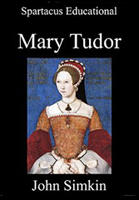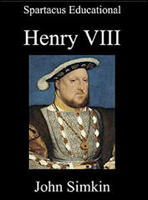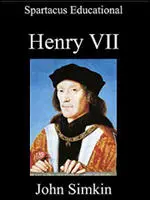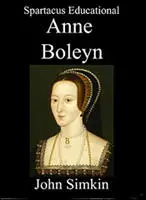George Carleton
George Carleton, the second son of John Carleton of Walton-on-Thames, and Joyce Welbeck Carleton, was born in 1529. His maternal grandmother was Margaret Culpepper, an aunt of Queen Catherine Howard. His father worked for the abbot of Westminster and used connection which secured his son a Westminster exhibition at Christ Church. In 1552 he passed to Gray's Inn. In 1557 Carleton served as a captain at St Quentin. In 1559 Carleton married Audrey Harper, who died early the following year. He married Elizabeth Mohun in 1561. Carleton built up a sizeable estate in the eastern and midland counties, partly by inheritance and partly by marriage. (1)
Carleton was elected to the House of Commons for Poole in 1571 and for Dorchester in 1572 and 1576. He became a leading supporter of the Puritan preacher, Thomas Cartwright. During this period he attracted a large following, especially among the younger scholars. As Roger Lockyer has pointed out: "Cartwright, who was only in his mid-thirties, represented a new generation of Elizabethan puritans, who took the achievements of their predecessors for granted and wished to push forward from the positions that they had established. Cartwright declared that the structure of the Church of England was contrary to that prescribed by Scripture, and that the correct model was that which Calvin had established at Geneva. Every congregation should elect its own ministers in the first instance, and control of the Church should be in the hands of a local presbytery, consisting of the minister and the elders of the congregation. The authority of archbishops and bishops had no foundation in the Bible, and was therefore unacceptable. Cartwright's definition lifted the puritan movement out of its obsession with details and threw down a challenge which the established Church could not possibly ignore." (2)
Thomas Cartwright was expelled from Cambridge University on the orders of John Whitgift, the Master of Trinity College and Regius Professor of Divinity. Cartwright went to live in Geneva, where he wrote a series of pamphlets attacking Whitgift. As a result of these activities in 1573 the high commission had issued a warrant for his arrest. Cartwright now moved to the University of Heidelberg. (3)
Cartwright returned to England in 1585. He was highly critical of the established church and his case was taken up in Parliament. The main spokesmen for Cartwright in the House of Commons were George Carleton and Peter Wentworth. In parliament most of his activity was directed towards a further reformation of the church along Presbyterian lines. Carleton believed that hardline protestants such as himself were the queen's only reliable subjects, her very "bowels", and that these "servants of God" should be concentrated in the counties nearest London as a militia to protect the regime from Catholic subversion. (4)
George Carleton died in January, 1590.
| Spartacus E-Books (Price £0.99 / $1.50) | ||||||
|---|---|---|---|---|---|---|
Primary Sources
(1) Patrick Collinson, George Carleton : Oxford Dictionary of National Biography (2004-2014)
George Carleton built up a sizeable estate in the eastern and midland counties, partly by inheritance and partly, in 1561, through the second of his three marriages. This was to Elizabeth (d. 1587), daughter of Walter Mohun of Overstone, Northamptonshire, and widow of Edward Cope of Hanwell, Oxfordshire. This marriage brought Carleton the manor of Overstone, where he mostly resided. He was a JP in Oxfordshire, Northamptonshire, Lincolnshire, and the Isle of Ely, and he sat in four sessions of parliament: for Poole in 1571 and for Dorchester in 1572, 1576, and 1581, boroughs in which Francis Russell, second earl of Bedford, had a commanding interest. Carleton employed his considerable legal and managerial powers in business partnerships, trusts, and other, sometimes disordered, financial affairs of various kinsmen and friends, and he was a persistent litigant... Carleton's diverse interests were connected and charged with a kind of demonic energy by his ardent puritanism. In parliament most of his activity was directed towards a further reformation of the church along Presbyterian lines.
Student Activities
Why were women hostile to Henry VIII's marriage to Anne Boleyn? (Answer Commentary)
Elizabeth Barton and Henry VIII (Answer Commentary)
Execution of Margaret Cheyney (Answer Commentary)
Pilgrimage of Grace (Answer Commentary)
Robert Aske (Answer Commentary)
Dissolution of the Monasteries (Answer Commentary)
Joan Bocher - Anabaptist (Answer Commentary)
Anne Askew – Burnt at the Stake (Answer Commentary)
Poverty in Tudor England (Answer Commentary)
Why did Queen Elizabeth not get married? (Answer Commentary)
Henry VIII (Answer Commentary)
Francis Walsingham - Codes & Codebreaking (Answer Commentary)
Mary Tudor and Heretics (Answer Commentary)
Sir Thomas More: Saint or Sinner? (Answer Commentary)
Hans Holbein's Art and Religious Propaganda (Answer Commentary)




